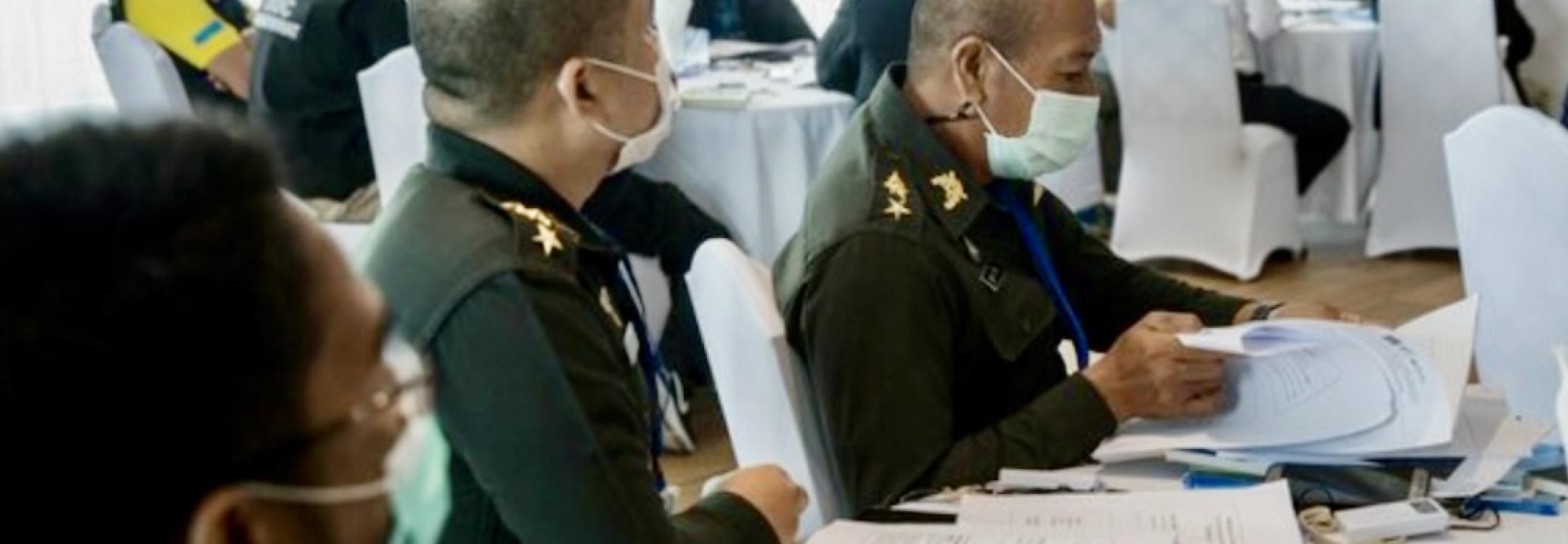
Shifting law enforcement culture from a reliance on confession-driven interrogations to rapport-based interviewing can reduce the incidence of torture and ill-treatment in police custody, APT Secretary General Barbara Bernath told a regional dialogue in South-East Asia.
Presenting at the ASEAN Dialogue on Realizing a Torture-Free Region, held on 20-21 August 2024 in Banten, Indonesia, Ms Bernath described key aspects of the Méndez Principles on Effective Interviewing for Investigations, including the implementation of legal and procedural safeguards, such as information about rights and special protection for children.
Drawing on the experiences shared by presenters from Thailand, Indonesia and Malaysia, Ms Bernath said the Méndez Principles “constitute a constructive and useful framework to advance a culture of effective interviewing to replace coercive interrogation”.
“The discussions on a gender-sensitive approach to interviewing, and the conduct of interviews with child victims of sexual exploitation, show positive shifts in practices that can be built upon.”
In her presentation, Ms Bernath stressed that effective interviewing helps to strengthen respect for human rights, decrease miscarriages of justice and build trust in law enforcement institutions.
“The upcoming study on the Rights of Accused Persons in Criminal Procedures in ASEAN, to be published at the end of the year, will also be a useful comparative basis for future advocacy, Ms Bernath added.
It is important to note progress for torture prevention in several countries in the ASEAN region, in particular through the criminalisation of torture in Thailand with the 2022 Anti-Torture Act, as well as in Indonesia with the new Criminal Code that will enter into force in 2026.
‘No persons shall be subject to torture or other inhuman or degrading treatment or punishment’ states Article 14 of the ASEAN Declaration on Human Rights. Taking practical steps to realise this right, including through sharing good practices among ASEAN Member States, was a focus of the regional dialogue.
Presentations and discussions examined the UN Convention against Torture (UNCAT), the Méndez Principles, including the gender dimensions of interviewing, and the Bangkok Rules.
In addition to legislative developments in Thailand and Indonesia, presenters pointed to increased monitoring of places of detention in countries across the region and some measures to reduce overcrowding and decongestion of prisons.
“There is still much to be done in the region,” Ms Bernath said. “Four ASEAN States are not yet a Party to the UNCAT and only two are Party to the Optional Protocol to the Convention against Torture.”
“Challenges were also raised, including need for resources, for capacity building and for a shift in institutional culture. However, the direction is clearly set to move towards a torture-free region,” Ms Bernath added.
The APT Secretary General noted that national human rights institutions in the region playa key role in supporting the States in their prevention efforts, including through increased monitoring and transparency as conducted n Philippines, Thailand, Indonesia and Malaysia.
The regional dialogue was jointly organised by the ASEAN Intergovernmental Human Rights Committee and the South East Asian National Human Rights Institutions National Forum, in partnership with the Jakarta Centre for Law Enforcement Cooperation and the Ministry of Foreign Affairs of Indonesia, with the support of the Australian Human Rights Commission and the Swiss Embassy in Jakarta.